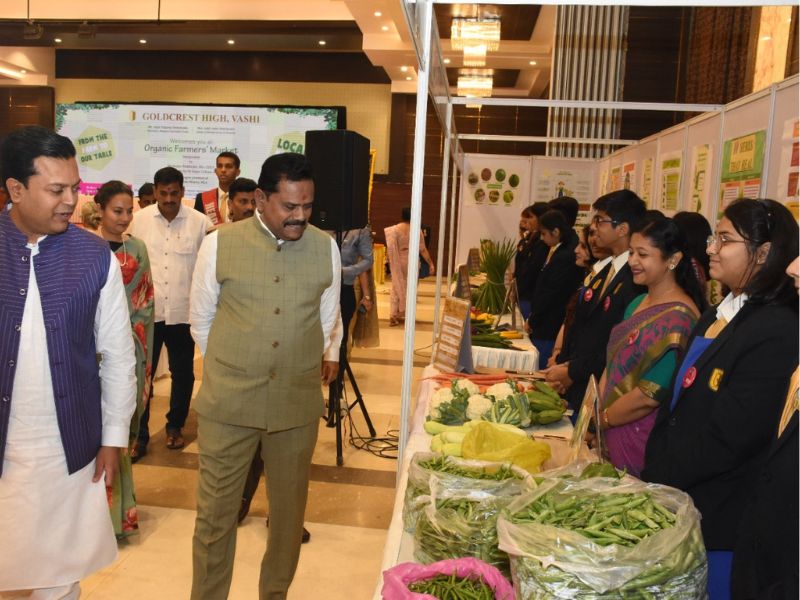Ronita Torcato
Goldcrest High Vashi students aged between 14 and 18 and studying in grades 9 to 12 organised a Farmers’ Market of organic products on Saturday in association with 21Organic as part of the school’s Goldcrest Earth Objective (GEO) project launched in 2013-14.
‘Fairtrade India’ an organization that works for the cause of farmers and sustainable development is a part of the GEO project at Goldcrest High.
“The value of sustainability is inculcated in students through active participation in the GEO project” the principal Kavita Malhotra said, adding, “Fair Trade is an initiative that I am very passionate about. Our GEO project involves co-curricular activities that bring our students closer to nature. Farmers are the best environmentalists, therefore it is essential to instil feelings of reverence towards them.”
21 Organic sources its produce from the Marathwada region in Maharashtra. Farmers along with student volunteers manned the stalls laden with vegetables and fruits priced between Rs.50/ and 300/-
Farmer Dhananjay Raut commended Fair Trade for helping them to directly connect with customers without the middle man. “Platforms like these help us get maximum profit and encourage us to grow more organic products.”
Alia, a student of Standard 11th said, “We are so excited to encourage more people to make responsible choices and move towards sustainable growth.”
Built by the Vilasrao Deshmukh Foundation in 2008 and headed by Amit and Aditi Deshmukh, Goldcrest High is managed by Manjara Charitable Trust, and caters to the educational needs of children between 18 months and 18 years. A frontrunner amongst schools in Vashi, Navi Mumbai, it is a private, non-profit, co-educational institution offering both ICSE and ISC streams to 1500 students.
Kavita Malhotra concluded “the connection between food, agriculture, and the environment needs to be understood well by young learners. The way we get food from farm to plate has a significant impact on the environment, contributing to global warming, air and water pollution, soil erosion, and human health problems. A conscious effort has to be made to consume more locally and organically grown foods.
We aim to create value-conscious individuals and empower them to reflect on issues of local and global concerns, setting them on the path to becoming responsible global citizens.”
